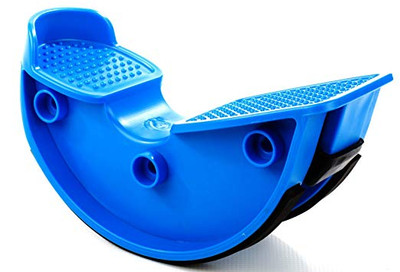 30th Apr 2021
30th Apr 2021
Treating Plantar Fasciitis At Home and In Rehabilitation
If you have a patient complaining of chronic heel pain more than likely plantar fasciitis is the culprit. This is a common foot injury particularly in patients who run for exercise or maybe overweight. It is characterized by a stabbing pain in the bottom of the foot near the heel. For some, plantar fasciitis may resolve on its own, but for others who experience persistent heel pain physical therapy in combination with home treatments is the best course of action to alleviate this pain.
What is Plantar Fasciitis
The plantar fascia is a band of deep tissue that runs from the heel bone all the way to the toes. When there is a deft formation or a tear of this issue it causes irritation, inflammation, and pain known as fasciitis. Typically, this condition develops over time and can also take significant time to heal. Or most patients this means experiencing heal pain anywhere from several months to a year.
Unfortunately, this type of pain and caused significant impairment in everyday activities like exercising and walking.
The reason there is such an extended recovery with plantar fasciitis is that the location of the injury does not have great blood circulation or high metabolic activity. An injury like planter fasciitis and take years to form to a place where a patient starts to experience pain and as a result it can take some time for it to heal. Unfortunately, for our patients who experience heal pain, it is a stubborn condition to treat.
The good news is this condition can be treated with physical therapy and some simple tools the patient can use at home to help combat the problem. One of the first things a patient needs to learn is why they a sustained this injury in the first place.
What Causes Plantar Fasciitis Pain?
In a nutshell, enter fasciitis is often an overuse injury. In physical therapy and rehabilitation is often seen in sports -related activities that involve running or jumping. In addition to physical activity, plantar fasciitis may also be caused by a typical but mechanics when performing activities like walking or running or even poor footwear choices.
Two biggest signs of planter fasciitis is experiencing pain upon initial weight-bearing in the bottom of the foot and/or experiencing heal pain first thing in the morning when the patient wakes up.
Other factors that contribute to the development of planter fasciitis include:
- Age (commonly between 30-60)
- Obesity
- Prolonged standing (particularly on hard surfaces)
Treating Plantar Fasciitis
The good news is, if caught and diagnosed early, plantar fasciitis can be successfully treated. Conversely, if a patient doesn’t seek treatment, it will take longer to heal and may worsen over time with a higher risk of recurrence.
When a patient is diagnosed with plantar fasciitis, the physical therapist will work to develop a comprehensive program to relieve the symptoms your experiencing as well as reduce the risk of recurrent heal pain. Some of the modalities that will be utilized:
- Stretching exercises to improve the flexibility of your ankle as well as improve the pliability of the plantar fascia.
- To correct ankle and toe positions, your practitioner may recommend the use of a night splint.
- Recommendations for supportive footwear and/or shoe inserts. This will help minimize foot pronation and reduce stress to the plantar fascia.
- Use of cold compression therapy to decrease pain and inflammation
- Iontophoresis which provides a gentle way to deliver pain medication through the skin
- The use of kinesio tape of the foot will be able to provide short term pain relief
Tips for treating plantar fasciitis at home
Simple home treatments can often resolve plantar fasciitis, especially if the patient is able to treat early. There are some useful tools that a patient can utilize at home that will gently stretch the plantar fascia which will help reduce pain and improve the outcome of physical therapy sessions.
- An Achilles Foot Rocker is an easy to use tool that increases tendon flexibility and motion. With regular use, the Achilles tendon rocker helps patients with plantar fasciitis reduce heel and foot pain.
Contact us today!
We can help rehabilitation practitioners and patients find the perfect devices and all necessary supplies and products to help treat plantar fasciitis successfully. Contact us today and we’ll answer any questions you may have about the benefits of using each device and what accessories you’ll need! Call us today at 1-801-770-3328 for more information.






